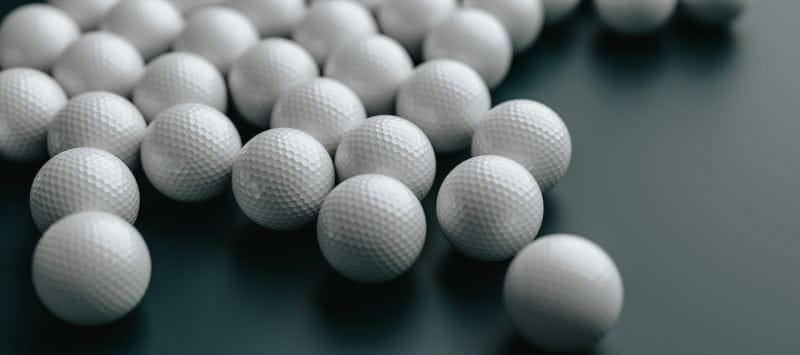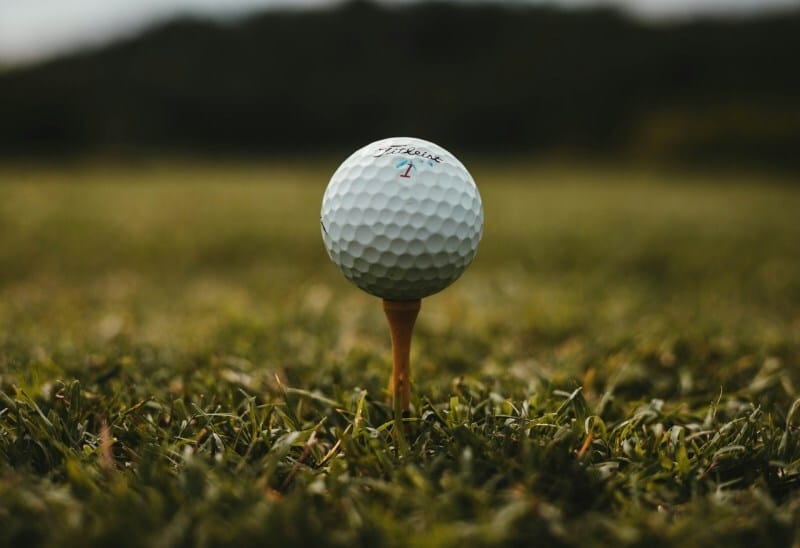Environmental concerns have prompted a shift towards sustainable practices across various sectors, including sports. Golf—a sport with a notable environmental footprint—is no exception; an estimated 300 million golf balls are lost or discarded in the United States every year, according to research by the Danish Golf Union.
One effective way to mitigate this impact is through the purchase of used golf balls. This practice plays a significant role in reducing plastic waste in landfills and waterways, offering a practical solution for environmentally conscious golfers.

The Environmental Impact of Golf Balls
Golf balls are typically composed of multiple layers, including a plastic outer shell and various inner components designed for performance. The longevity and durability of these balls mean they can persist in the environment long after they are discarded. When lost on courses or discarded improperly, golf balls contribute to plastic pollution, which can ultimately impact soil and water quality. In addition, the production of new golf balls involves resource-intensive processes, adding to the overall environmental burden.

The Role of Used Golf Balls in Waste Reduction
Purchasing recycled golf balls provides an opportunity to reduce the environmental impact associated with the disposal of golf equipment. These balls are collected, cleaned and often refurbished to restore their original performance; by opting for used golf balls for sale, golfers are effectively diverting these items from landfills and reducing the demand for new golf balls. Recycle balls typically save around 39 grams of new synthetic rubber per ball – almost 90% of the weight of a golf ball. This not only minimizes plastic waste but also reduces the resources required for manufacturing new products.
Refinished Golf Balls: A Sustainable Choice
Refinished golf balls are an excellent example of how sustainability can be integrated into golf practices. These balls are meticulously cleaned and reconditioned to confirm they meet quality standards. The refinishing process involves replacing damaged components and refurbishing the exterior, which extends the life of the ball and reduces the need for new materials; choosing refinished golf balls, golfers support a circular economy model where products are reused and repurposed, thus decreasing overall waste.
Benefits Beyond Waste Reduction
The environmental advantages of purchasing used golf balls extend beyond waste reduction. The production of new golf balls requires significant energy and raw materials, including plastics and rubber. By opting for used golf balls for sale, golfers contribute to lower carbon emissions associated with the production process. Additionally, the decreased demand for new golf balls can lead to reduced resource extraction and less environmental degradation, supporting broader ecological sustainability.
The Growing Market for Used Golf Balls
The market for used golf balls has expanded significantly in recent years, driven by increasing awareness of environmental issues and a growing desire for sustainable practices. Various companies and online platforms now offer a wide range of used golf balls, making it easier for golfers to make eco-friendly choices. These used golf balls are available in various conditions, from lightly used to fully refinished options, catering to different preferences and performance needs.

Addressing Misconceptions About Used Golf Balls
Despite the environmental benefits, there are misconceptions about the quality and performance of used golf balls. Some golfers may perceive these balls as inferior compared to new ones. However, advancements in cleaning and refinishing technologies have significantly improved the quality of used golf balls. Refinished golf balls undergo rigorous testing to guarantee they meet high-performance standards, making them a viable and effective choice for golfers seeking both sustainability and quality.
Supporting Sustainable Golf Practices
Embracing the use of used golf balls aligns with broader efforts to promote sustainable practices within the sport of golf. Golf courses and organizations are increasingly adopting green initiatives, such as reducing water usage, managing waste more effectively, and promoting eco-friendly products. Incorporating used golf balls into their routines, golfers can actively contribute to these efforts, supporting a more environmentally responsible approach to the sport.
Final Thoughts
Purchasing used golf balls represents a significant step towards reducing plastic waste and promoting sustainability in golf. This practice helps divert waste from landfills, reduces the environmental impact of new ball production and supports a circular economy through the use of refinished golf balls. As awareness grows and more golfers choose used golf balls for sale, the collective impact can lead to meaningful environmental benefits, aligning with the broader goals of sustainability in sports and beyond.
The post Reducing Plastic Waste: Purchasing Used Golf Balls For Better Sustainability appeared first on Moss and Fog.